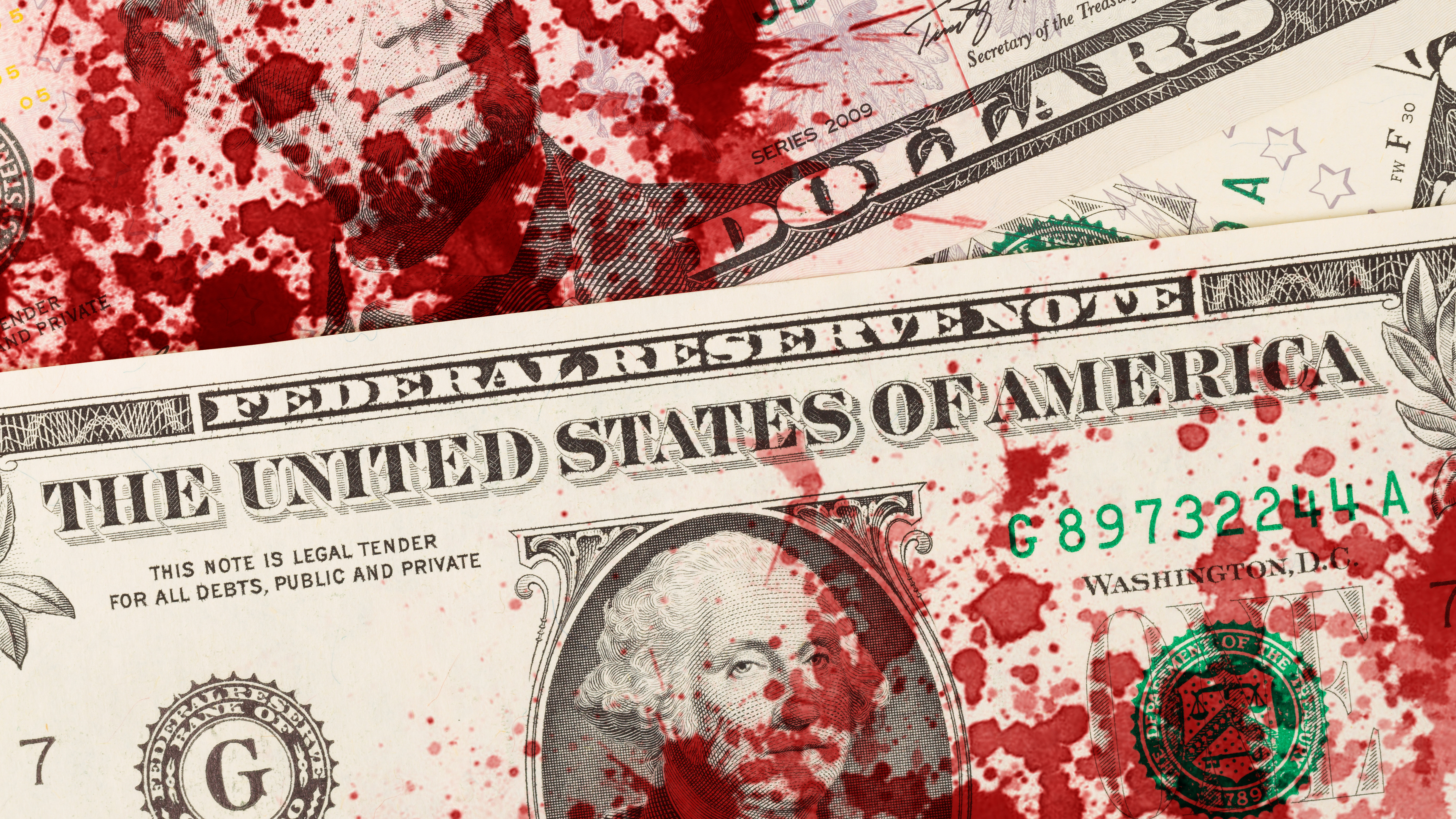Why are lobbyists trying to kill Trump's 'revenge tax'?
Analysts say it would deter foreign investment


A free daily email with the biggest news stories of the day – and the best features from TheWeek.com
You are now subscribed
Your newsletter sign-up was successful
It's being called President Donald Trump's "revenge tax." The GOP budget bill currently stuck in the Senate would create a new levy of up to 20% for some foreign companies operating in the U.S., a move critics say would deter foreign investment at a critical moment in American economic history.
Why is the provision called a "revenge" tax? Because it would be used to "punish companies based in countries that try to collect new taxes from American firms," said The New York Times. That includes nations that levy a 15% "global minimum tax" under an international agreement the Biden administration helped broker in 2021, as well as countries that tax digital services provided by U.S. tech companies. But foreign companies might decide not to put their money into America if it means they might run afoul of the revenge tax. That "directly contradicts the president's investment vision" of bringing jobs and manufacturing back to America, said Jonathan Samford, the CEO of the Global Business Alliance. Business lobbyists are in a "scramble" to kill the tax, said the Times.
What did the commentators say?
The purpose of the tax is to "intimidate, not to raise revenue," said The Economist. The effects would be counterproductive. The Joint Committee on Taxation, a watchdog group, found that the tax would actually cut into government revenues by "scaring off foreign investors and therefore lowering American asset prices." And it sends a signal. The Trump administration's "protectionist logic" does not just apply to goods and services provided by other countries but also to "capital flows." That is dangerous territory for a president who has "already made investing in America a riskier bet."
The Week
Escape your echo chamber. Get the facts behind the news, plus analysis from multiple perspectives.

Sign up for The Week's Free Newsletters
From our morning news briefing to a weekly Good News Newsletter, get the best of The Week delivered directly to your inbox.
From our morning news briefing to a weekly Good News Newsletter, get the best of The Week delivered directly to your inbox.
Foreign countries have been "seeking ways to pilfer our tax base" for years, said Rep. Ron Estes (R-Kan.) at Bloomberg Tax. The global minimum tax would "erode our tax base" while giving other countries the "ability to target and tax U.S.-owned companies." Taxing countries that take aim at U.S. companies "isn't 'revenge,'" but it does allow the federal government to "advocate for U.S. companies and workers."
Escaping the revenge tax "is simple," said The Wall Street Journal editorial board. If foreign governments do not like how the tax might affect their businesses and investors, they can "stop doing these things" that trigger its implementation. That would include "scrapping" the digital services tax and reforming the global minimum tax to exclude corporate revenue taxed by the United States. Foreign governments "know exactly what to do to spare themselves."
What next?
The budget measure would give the Trump administration new taxing authority just as "courts are already debating the legality of the sweeping tariffs" the White House has imposed on global trading, said MarketWatch. Some analysts say the logic of mutually assured destruction is at play. The hope behind creating a revenge tax is that it "will never be applied," said Morgan Stanley credit strategist Michael Zezas. But that hope may not be sound — after all, the White House, said MarketWatch, has already "proved willing to risk disrupting facets of the globalized economy."
A free daily email with the biggest news stories of the day – and the best features from TheWeek.com
Joel Mathis is a writer with 30 years of newspaper and online journalism experience. His work also regularly appears in National Geographic and The Kansas City Star. His awards include best online commentary at the Online News Association and (twice) at the City and Regional Magazine Association.
-
 ‘The West needs people’
‘The West needs people’Instant Opinion Opinion, comment and editorials of the day
-
 Filing statuses: What they are and how to choose one for your taxes
Filing statuses: What they are and how to choose one for your taxesThe Explainer Your status will determine how much you pay, plus the tax credits and deductions you can claim
-
 Nan Goldin: The Ballad of Sexual Dependency – an ‘engrossing’ exhibition
Nan Goldin: The Ballad of Sexual Dependency – an ‘engrossing’ exhibitionThe Week Recommends All 126 images from the American photographer’s ‘influential’ photobook have come to the UK for the first time
-
 Trump’s plan to ‘nationalize’ US elections
Trump’s plan to ‘nationalize’ US electionsTalking Points States oversee voting. Will Republicans take over?
-
 Will Trump’s oil push end Cuba’s Communist regime?
Will Trump’s oil push end Cuba’s Communist regime?Today’s Big Question Havana’s economy is teetering
-
 Will Peter Mandelson and Andrew testify to US Congress?
Will Peter Mandelson and Andrew testify to US Congress?Today's Big Question Could political pressure overcome legal obstacles and force either man to give evidence over their relationship with Jeffrey Epstein?
-
 Why is Tulsi Gabbard trying to relitigate the 2020 election now?
Why is Tulsi Gabbard trying to relitigate the 2020 election now?Today's Big Question Trump has never conceded his loss that year
-
 Did Alex Pretti’s killing open a GOP rift on guns?
Did Alex Pretti’s killing open a GOP rift on guns?Talking Points Second Amendment groups push back on the White House narrative
-
 Rep. Ilhan Omar attacked with unknown liquid
Rep. Ilhan Omar attacked with unknown liquidSpeed Read This ‘small agitator isn’t going to intimidate me from doing my work’
-
 Is the American era officially over?
Is the American era officially over?Talking Points Trump’s trade wars and Greenland push are alienating old allies
-
 Trump’s ‘Board of Peace’ comes into confounding focus
Trump’s ‘Board of Peace’ comes into confounding focusIn the Spotlight What began as a plan to redevelop the Gaza Strip is quickly emerging as a new lever of global power for a president intent on upending the standing world order
